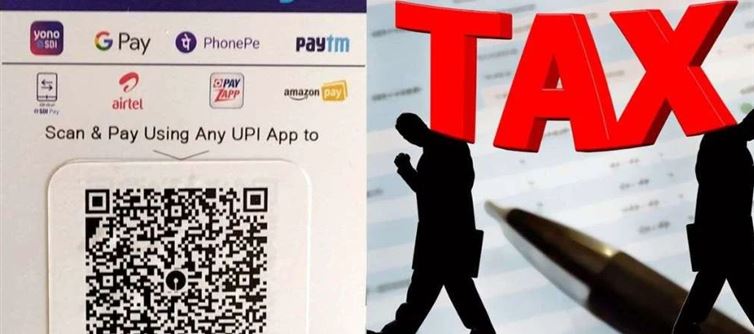
Additionally, UPI reduces the responsibility of taxpayers and offers a trackable transaction method. Additionally, UPI increases government tax collection and lessens the need to carry cash.
Customers' convenience is increased by the fact that UPI transactions don't involve any additional fees or hidden costs when utilizing UPI apps and wallet PLATFORM' target='_blank' title='digital-Latest Updates, Photos, Videos are a click away, CLICK NOW'>digital wallets. To begin using the UPI services, customers only need a PIN or unique ID.
Taxation Rules
Income tax regulations also apply to UPI, and the department keeps an eye on these transactions to make sure they're compliant. presents from non-relatives that total more than Rs 50,000 in a fiscal year are taxed as "Income from Other Sources," and presents received through UPI may be taxable. However, regardless of the amount, presents from family members are tax-exempt.
Employer-provided gifts or vouchers through UPI that total more than Rs 5,000 annually are subject to taxes. These are added, after appropriate taxes, to a person's salary income.
Additionally, UPI cashback offerings are regarded as gifts by the Income Tax Department. If the total amount of cashback surpasses Rs 50,000 in a single fiscal year, it becomes taxable. Additionally, any funds that a business receives from UPI as a reward or incentive are included in its taxable income.
If UPI transactions total more than Rs 1 lakh are deemed to constitute income, they may be subject to examination and taxation. However, there is a greater exemption threshold of Rs 5 lakh for transactions that benefit IPOs, insurance payments, or tax payments.
While interest generated on loans is taxable as income, money received as loan repayments or reimbursements is not.
Additionally, UPI cashback offerings are regarded as gifts by the Income Tax Department. If the total amount of cashback surpasses Rs 50,000 in a single fiscal year, it becomes taxable. Additionally, any funds that a business receives from UPI as a reward or incentive are included in its taxable income.
If UPI transactions total more than Rs 1 lakh are deemed to constitute income, they may be subject to examination and taxation. However, there is a greater exemption threshold of Rs 5 lakh for transactions that benefit IPOs, insurance payments, or tax payments.
While interest generated on loans is taxable as income, money received as loan repayments or reimbursements is not.
Monitoring
Every UPI transaction is monitored by the Income Tax Department. Every UPI transaction is linked to a bank account and PAN, and when paying taxes, people are required to disclose any income they have received through UPI. Cashback, gifts, and compensation for goods or services are examples of these remarks. In addition to possible fines, reassessments under Section 147 of the Income Tax Act may result from failing to record transactions of this kind.




 click and follow Indiaherald WhatsApp channel
click and follow Indiaherald WhatsApp channel